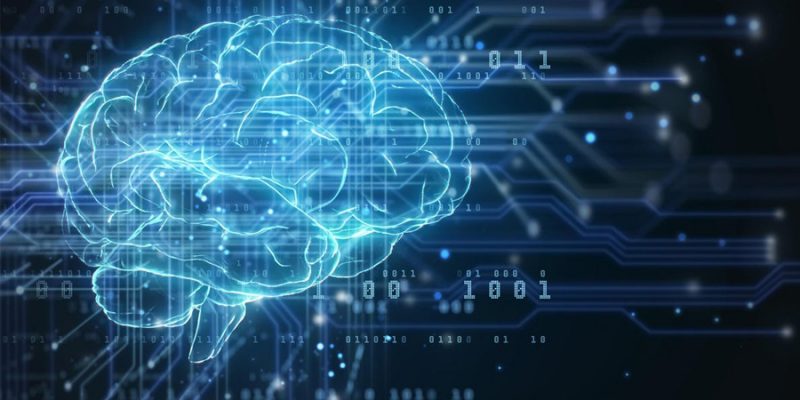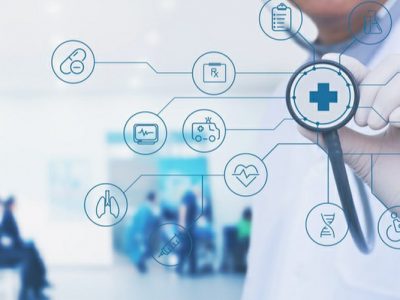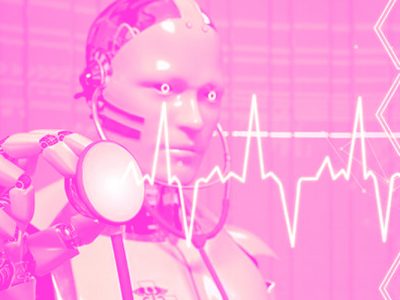
The utilization of AI in healthcare might reach out into unforeseen regions like creative practice
Advanced computer software can now analyze skin disease more precisely than a board-confirmed dermatologist which is only possible because of AI in healthcare. Better yet, the program can do it quicker and all the more effectively in healthcare, requiring a preparation informational collection as opposed to 10 years of costly and work serious healthcare service. While it could create the impression that it is inevitable before doctors in healthcare are delivered outdated by this sort of AI innovation, a more intensive gander at the job this AI innovation can play in the conveyance of medical services is justified to see the value in its ongoing assets, constraints, and moral intricacies.
AI, which incorporates the fields of AI, regular language handling, and advanced mechanics, can be applied to practically any field in medicine, and its likely commitments to biomedical examination, clinical schooling, and conveyance of medical services appear to be boundless. With its vigorous capacity to incorporate and gain from huge arrangements of clinical information, AI in healthcare can serve jobs in diagnosis, clinical choice making, and customized Healthcare. For instance, AI-based indicative calculations applied to mammograms are aiding the location of bosom malignant growth, filling in as a “second assessment” for radiologists. Moreover, high-level virtual human symbols are equipped for participating in significant discussions, which have suggestions for the finding and treatment of mental disease.AI applications likewise stretch out into the actual domain with automated prostheses, actual errand emotionally supportive networks, and versatile controllers aiding the conveyance of telemedicine.
Regardless, this strong innovation makes a clever arrangement of moral difficulties that should be recognized and relieved since AI innovation has a gigantic capacity to compromise patient inclination, wellbeing, and security. Nonetheless, current strategy and moral rules for AI innovation are falling behind the headway AI has made in the medical care field. While certain endeavors to take part in these moral discussions have emerged,9-11 the clinical local area stays not well educated regarding the moral intricacies that maturing AI innovation can present. As needs are, a rich conversation anticipates that would significantly profit from doctor input, as doctors will probably be connecting with AI in their day-to-day practice sooner rather than later.
It plans to handle a portion of the moral situations that emerge when AI innovation is utilized in medical care and clinical schooling.
Probably the most urgent worries brought up in this issue incorporate addressing the additional gamble to patient protection and privacy, parsing out the limits between the doctor’s and machine’s part in quiet consideration, and changing the schooling of future doctors to stand up to the approaching changes in the act of medication proactively. Furthermore, exchange on these worries will further develop doctor and patient comprehension of the job AI can play in medical care, assisting partners with fostering a practical feeling of what AI may or may not be able to. At last, expecting likely moral traps, distinguishing potential arrangements, and giving approach proposals will be good for doctors embracing AI innovation in their training as well as the patients who accept their consideration.
One significant subject to be resolved in this issue is how to adjust the advantages and dangers of AI innovation. There is an advantage to quickly incorporating AI innovation into the framework of the medical services, as AI represents the chance to work on the effectiveness of medical services conveyance and the nature of patient consideration. In any case, there is a need to limit the moral dangers of AI execution — which can incorporate dangers to security and secrecy, informed assent, and patient independence — and to consider how AI is to be coordinated in clinical practice. Partners ought to be urged to be adaptable in integrating AI innovation, in all likelihood as a reciprocal instrument and not a substitution for a doctor.
A subsequent significant subject in this issue rotates around the job AI can play in clinical training, both in getting ready future doctors for a lifelong coordinating AI and in straightforwardly involving AI innovation in the schooling of clinical understudies.
That’s what Donald Combs fought, given the ascent of AI, clinical schooling ought to be rethought from an emphasis on information review to an emphasis on preparing understudies to collaborate with and oversee falsely clever machines; this rethinking would likewise require steady regard for the moral and clinical intricacies that emerge among patients, guardians, and machines. The last subject resolved in this issue clarifies the legitimate and wellbeing strategy clashes that emerge with the utilization of AI in medical services. There is no question that AI will have far and wide repercussions that reform the act of medication, changing the patient experience and doctors’ everyday schedules.
The utilization of AI in medical services might reach out into unforeseen regions like creative practice, with new problems arising out of the ascent of reasoning machines in beforehand human pursuits. Furthermore, it portrays the likely effect of AI on motorized human bodies. Regardless, there is a lot of work to do to set out the appropriate moral starting point for utilizing AI innovation securely and really in medical care.



















